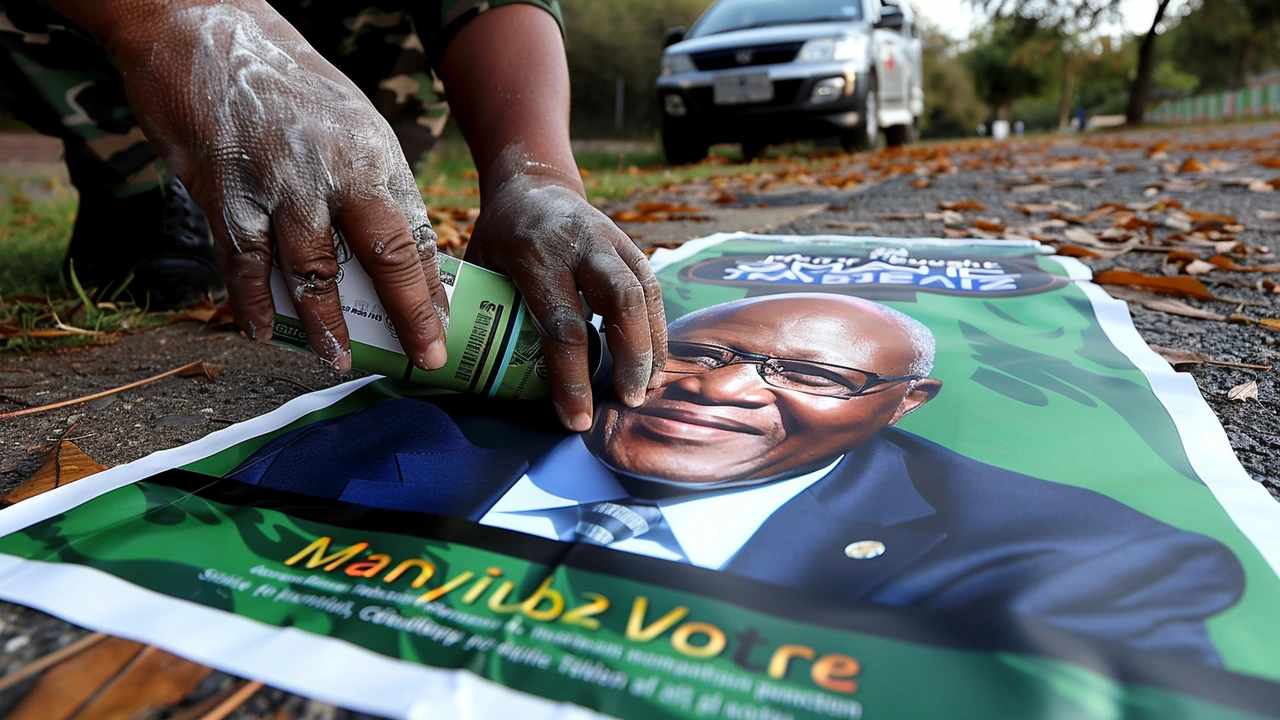Jacob Zuma's Return Sparks Political Realignment in South Africa
In a country where political loyalties have been steadfast for decades, the emergence of the MK party, led by former President Jacob Zuma, is causing ripples of change. The African National Congress (ANC), which has ruled South Africa since the end of apartheid in 1994, now faces one of its most significant challenges yet. Zuma, who led the ANC until his resignation in 2018 amid corruption allegations, has channelled his enduring influence and the legacy of the ANC’s old armed wing into this new political movement.
From Loyalty to Dissent: A Shift in Allegiances
Dumisani Ndlovu's story is emblematic of the growing disillusionment with the ANC. As a lifelong supporter of the party, his decision to switch allegiance to Zuma's MK party marks a broader trend among voters who feel betrayed by the ANC's treatment of Zuma. The former president, now 82, has announced his intention to fight for the rights of South Africans, positioning his party as a defender against what he describes as the ANC and court's attempts to silence him.
Leveraging Anti-Apartheid Nostalgia
The MK party, named after Umkhonto we Sizwe (the spear of the nation), the ANC's former armed wing during the anti-apartheid struggle, taps into a deep well of historical sentiment. The branding has resonated particularly well with a populace nostalgic for the days of the anti-apartheid struggle. Many supporters see Zuma’s efforts as a continuation of that fight, framing current struggles within the historical context of the ANC's past glories. This nostalgia is being strategically used to rally support against the ANC, which many believe has strayed from the ideals that once earned it mass support.
Promises of Change: Jobs, Education, and Healthcare
The MK party's platform promises significant reforms aimed at addressing some of South Africa's most pressing issues. With pledges to create jobs, provide free education, and improve healthcare, the party is appealing strongly to young voters, who represent the majority of the population. In a country grappling with high youth unemployment rates and socio-economic inequalities, these promises are expected to garner substantial support.
Zuma's Influence in KwaZulu-Natal
Zuma's influence remains particularly potent in his home province of KwaZulu-Natal. Despite being barred from running in the upcoming elections due to a recent conviction, his political clout is undeniable. The MK party is projected to secure seats in this region, which could be pivotal in the overall election outcome. Analysts suggest that the strength of Zuma’s support might force the ANC into forming a coalition to retain power, signaling a potential seismic shift in South Africa’s political landscape.
The Broader Implications for South African Politics
If the MK party succeeds in its efforts, it could represent the most significant political shift since the advent of democracy in South Africa. The party's success would not only challenge the ANC’s dominance but could also reshape the political landscape in unprecedented ways. With an electorate increasingly fatigued by corruption scandals and unmet promises, the MK party's rise reflects a yearning for new leadership and genuine change.
Future Projections and Political Dynamics
As South Africa approaches the elections, the dynamics between the ANC and the MK party will be closely watched. The potential coalition between these two significant political forces could introduce new policies and reforms, albeit born out of necessity rather than ideological alignment. However, Zuma's charisma and the deep-seated loyalty of his supporters cannot be underestimated. The coming months will be crucial in determining how these political winds will ultimately shape the future of South Africa.

Conclusion: A New Chapter in South African Politics
The launch of the MK party under Jacob Zuma’s leadership marks a defining moment in South African politics. By evoking the spirit of the anti-apartheid struggle and addressing contemporary socio-economic challenges, Zuma has managed to capture the imagination of disillusioned voters. Whether the party's promises translate into electoral success and tangible change remains to be seen. However, the mere emergence of the MK party has already signaled to the ANC and the broader political establishment that the status quo is not as stable as it once seemed. South Africa stands on the cusp of potentially significant political transformation, with the MK party poised to play a crucial role in the unfolding narrative.

Comments